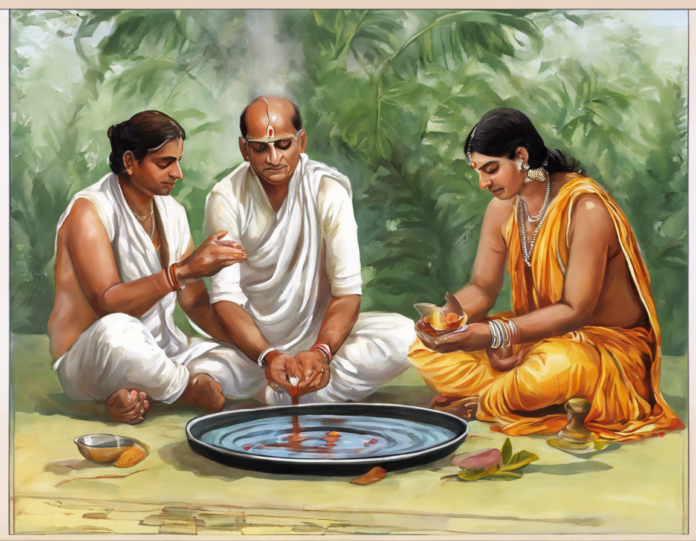Introduction
Pitru Paksha, also known as Pitru Paksha Shraddha, is a 16-day period in the Hindu lunar calendar dedicated to honoring and paying homage to one’s ancestors. This sacred period holds deep significance in the Hindu tradition as it is believed to be a time when the souls of departed ancestors visit the Earth. During Pitru Paksha, rituals and prayers are performed to express love, gratitude, and respect towards the ancestors. In this article, we will explore the traditions and beliefs associated with Pitru Paksha and delve into the significance of honoring ancestors in Hindu culture.
The Significance of Pitru Paksha
Pitru Paksha falls in the Hindu lunar month of Bhadrapada (usually in September or October) and is considered an auspicious time for conducting rituals and offering prayers for the deceased ancestors. It is believed that during this period, the souls of ancestors, known as pitrs, are freed from the realm of Yama, the god of death, and are able to receive the offerings and blessings from their descendants on Earth. By performing Shraddha rituals during Pitru Paksha, Hindus seek to provide spiritual nourishment to their ancestors and ensure their well-being in the afterlife.
Traditions and Rituals
-
Tarpan: One of the most important rituals performed during Pitru Paksha is Tarpan, which involves offering water mixed with sesame seeds, barley, and rice to the departed souls. This act of offering is believed to satiate the thirst of the ancestors and bring them peace.
-
Shraddha: The Shraddha ceremony is another essential ritual where a formal offering of food, known as pinda, is made to the ancestors. This offering is meant to nourish the souls of the departed and is accompanied by prayers and mantras.
-
Pind Daan: In addition to offering food to the ancestors, performing Pind Daan is considered auspicious during Pitru Paksha. It involves offering rice balls to the deceased ancestors to help elevate their status in the afterlife.
-
Feeding the Poor: Along with performing rituals for the ancestors, it is customary to feed the poor and needy during Pitru Paksha. This act of seva is seen as a way to receive blessings not only for the ancestors but also for oneself and one’s family.
Beliefs and Philosophy
Hindu scriptures emphasize the importance of honoring and respecting one’s ancestors. It is believed that by acknowledging and remembering the sacrifices and contributions of our forefathers, we can cultivate a sense of gratitude and humility. The concept of Pitru Runa, or debt to the ancestors, underscores the idea that we are indebted to our ancestors for the gift of life and must honor them through righteous actions and rituals.
FAQs (Frequently Asked Questions)
- What is the significance of Pitru Paksha in Hinduism?
-
Pitru Paksha is a sacred period dedicated to honoring one’s ancestors and seeking their blessings for the well-being of the family.
-
How long does Pitru Paksha last?
-
Pitru Paksha lasts for 16 days, from the Purnima (full moon) to the Amavasya (new moon) in the month of Bhadrapada.
-
Can non-Hindus participate in Pitru Paksha rituals?
-
While Pitru Paksha rituals are primarily Hindu customs, people of all faiths can participate in acts of charity and remembrance for their departed loved ones during this period.
-
What happens if Pitru Paksha rituals are not performed?
-
It is believed that neglecting to perform Pitru Paksha rituals may lead to dissatisfaction among the ancestors and bring misfortunes to the family.
-
Can women perform Pitru Paksha rituals?
- Yes, women can participate in Pitru Paksha rituals and offer prayers for their ancestors. There is no gender restriction on honoring one’s ancestors in Hinduism.
Conclusion
Pitru Paksha serves as a poignant reminder of the interconnectedness between the living and the deceased in Hindu culture. Through the performance of rituals, prayers, and acts of charity, Hindus express their gratitude and respect for their ancestors while seeking their blessings and guidance. The traditions and beliefs associated with Pitru Paksha underscore the enduring bond between generations and the importance of honoring the past to ensure a prosperous future.


